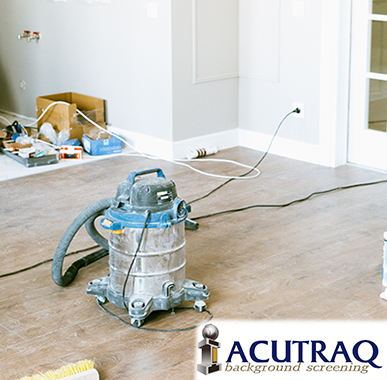If you are a landlord, you know that one of your biggest headaches is dealing with tenants who don’t properly care for the property they are renting from you. A bad tenant can do a lot of damage during the period they are renting a house. But normal use of a property also causes wear and tear on it. It can be hard for landlords to know where expected deterioration ends, and negligence and abuse begin. Here are a few things to consider when dealing with rental property damage.
What is Normal Wear and Tear?
There are two types of wear and tear that a property may be subject to. One is ambient degradation and the other is degradation that results from the property being used.
Ambient degradation takes the form of things such as carpets and wallpaper fading due to age and sunlight, paint fading and peeling, wooden framework drying out and cracking, damage through pest infestations etc.
Usage degradation occurs whenever someone uses some part of the property. This might include door hinges wearing due to doors being opened and closed, carpets becoming threadbare due to being walked on, light and power switches degrading as a result of being turned on and off, and other normal usage scenarios.
This type of damage is normal and is not the fault of the tenant. It is the landlords’ responsibility to fix damage caused by normal wear and tear on a property to ensure that the property remains safe and fit for purpose. This is just part of the depreciation on that property and should be offset by the rent paid by the tenant.
What is Tenant Neglect and Abuse?
While landlords need to maintain the safety and usability standards for a property, there are some maintenance tasks that the tenant is expected to undertake. These include keeping the property clean, maintaining the lawn and garden, avoiding excessive stains on carpets and walls, avoiding the use of excessive force that results in damage to the property.
Other examples of abuse would be holes in walls and doors that are the result of arguments or accidents, chipped tiles and plaster that are the result of poor judgement, and the use of unapproved paint or wallpaper that devalues the property.
What Can You Do to Prevent Neglect and Abuse?
To identify damage caused by a tenant you will first need a record of the state of the house before the tenant moved in. This is where OnSight PROS come in, they make it easy for landlords to be more places at once. They offer the best reports for Move In/Move Out Inspections, Periodic Inspections, and many other great solutions.
When a tenant starts renting the property it is important to ensure that they know what is expected of them. Talk to them and explain what type of damage will result in a deduction from their deposit. Make sure that they know the terms of the rental agreement.
Regular inspections are important to ensure that the property is being properly cared for. These should be part of the rental agreement that you have with the tenant. Make sure that the tenant knows when an inspection is happening so that they can be present and can work it in with their schedule.
Choosing the right tenant
Another way to ensure that your potential tenants aren’t going to be more trouble than they are worth is to do a Background check to filter out those with a bad history. Utilizing ACUTRAQ’s services or Tenant Screening for Landlords free services allows landlords to find good tenants who won’t trash their rental property and avoid bad tenants with a history of inconsiderate behavior. This can save you a lot of money and help you to avoid the need to deal with unpleasant people.
Protect your investment and ensure that the tenants you allow into your property are not the type who will do more than the expected amount of ware and tare while living there. Some degree of damage is “normal” and unavoidable, but bad tenants can do enough damage to make dealing with them a nightmare. Do a background check, that way you will have the peace of mind in knowing that your rental property is making you money and not sending you broke.




